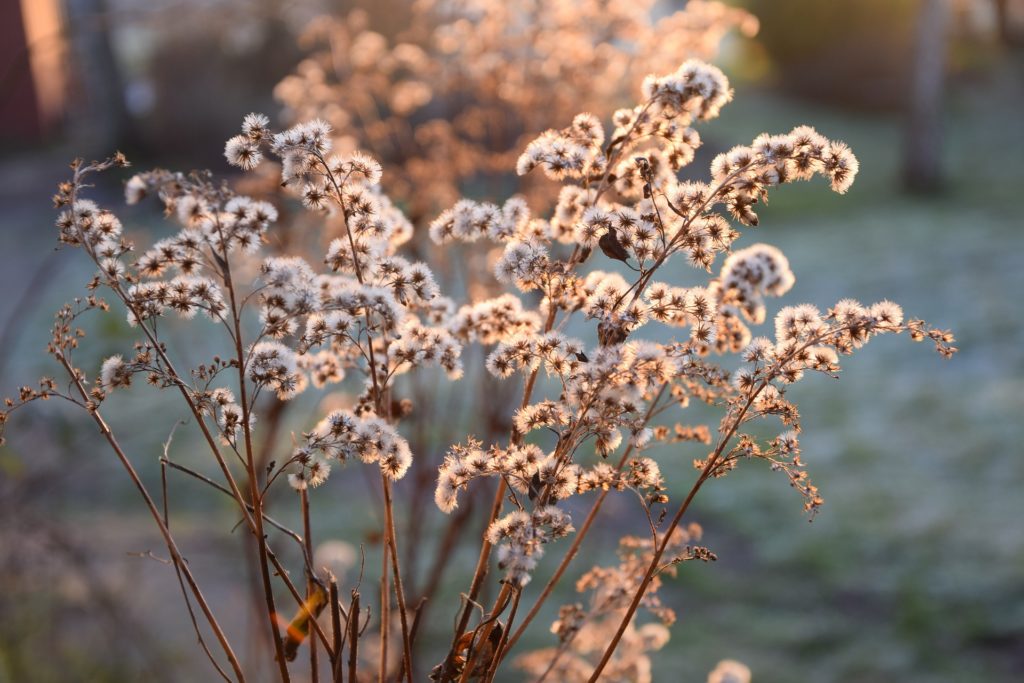In Kindergarten teachers teach the seasons. They tell children that summer is hot and sunny, and that it is a time of play and fun. Autumn is a time of changing leaves, apples and pumpkins. Winter is snowy white, cold and spent mostly indoors. Spring is flowers and renewal; misty rain and lots of smiles.
Children learn that times change, nothing very good or very bad ever stays forever. The leaves will fall and the snow will melt. In upper-elementary school, seasons of the year are replaced with seasons of life, as literature and social studies come into a child’s life and they read about dastardly deeds and heroic hearts.
Muslims experience the seasons as a continuous gift from God. The tall trees of late fall that stand like soldiers, but move like lace are a sign of the coming cold. {Verily with hardship there is ease} (al Sharḥ, 6). The summer sun that beats down and bakes the earth grants a long day romping at shore side and long evenings talking under the darkening sky.
{Verily in the creation of the heavens and the earth, and the alternation of night and day – there are indeed signs for people of understanding… } (ᾹlʿImrān, 190)>
This year in Minnesota, winter threatens to stay. On May 3rd, large flakes of snow still fall from the sky and heated air is still pumped through vents in my house. Flowers are trying to grow up and down the stairs that lead to my door, but they are losing the battle. In the backyard, a Magnolia tree tries to blossom, but snow-flakes cover the pink buds. The news talks about this strange year and compares it to a time before temperatures were recorded. It is an anomaly, they say.
Our human seasons come and go in similar ways: graduation, marriage, birth, a new job, a big move… The major events of life are decorated with the details of favorite foods, sweet memories, and embarrassing sillies. Sometimes life stages and events come and go with the same joy of the seasons, and at other times we stagnate. Our night prayers, like my flowers, threaten to give up the fight. Our positive attitude, carefully honed, is blanketed with the burdens of life’s trials. It is here that ṣabr becomes our rope.
Ṣabr is commonly translated as ‘patience’. But the word patience in western life is used to teach us how to wait. We are taught to wait our turn, wait in line, wait for a call, wait and wait. While this might be patience, it is not ṣabr. Ṣabr is determination; it is not giving up; it is little flowers opening up in defiance of snowflakes. Ṣabr is the thin-lipped smile that does smile; even though illness, distance, and poverty threaten on the horizon.
Khadijah رضي الله عنها was the personification of ṣabr. From the beginning, she chose the daʿwah, and she demonstrated great ṣabr during the fifteen years she waited for her husband to receive the wahī. Those years were filled with long days alone, the death of two infant sons, and the day to day hardships of life. After the revelation began, she continued to live in forbearance when the mushrikīn of Mecca began to find ways to hurt the Prophet ﷺ (and by default, Khadijah رضي الله عنها) without challenging Abū Tālib’s declaration of protection. Two of her daughters found themselves rejected and divorced, garbage was found outside her door step, and her money was spent to free slaves and support the believers. She kept working in support of the daʿwah and the Prophet ﷺ as she watched and heard of the abuse and torture that was afflicted on her people. When the Muslims were corralled into the cols of Mecca, starved and ostracized – she joined them in facing starvation and danger. Her money paid purposely inflated prices for food; her disposition gave them hope. Khadijah رضي الله عنها died in that season. While the other Muslims were to see the spring of the daʿwah, with a move to Medina, victory at Badr, and a growing ummah, Khadijah’s physical life ended in the dark season of the boycott. Yet her very personage has given Muslim men and women a reason to hope for every day since her death.
In our personal lives, we can sometimes feel as though spring will never come, that it will still be snowing in July. It can seem as though we will never see our loved ones again, or that we will never be able meet our debts. It can seem that illness is forever, or painful relationships are our destiny. It is at this time that we must draw from the spring of ṣabr – we must pull out hope and trust. We must keep going, keep doing the same thing day after day. Like Khadijah رضي الله عنها, we may have to pay inflated prices, we may have to serve our religion while others try to destroy it, and we may have to be ready to embrace the hurt and frightened around us. Her spring came in the promise of God, and in truth our seasons extend into the next life, and that alone gives us hope. Let us remember the lessons of kindergarten and elementary school: seasons come and go, and nothing of this world lasts forever. As we wait for our own personal spring, we must grab onto the rope of ṣabr, knowing that if we hold on tight enough the rope itself will take us where we need to be.

